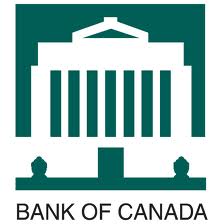by admin | Dec 19, 2012 | Mortgage
Mortgage Pre-Approval
One of the first steps when buying a home is getting pre-qualified for a mortgage. It is important to understand how much of a mortgage you can afford before you begin searching for a home.
I work with a selected group of mortgage professionals who are specially qualified to assist you in this area. If you would like to receive the latest rates, and meet with a mortgage professional, please contact me.
The following links are also helpful, if you would like to make some quick calculations.
House Hold Budget Calculator
Mortgage Affordability Calculator
Mortgage Payment Calculator
CMHC Calculator
Mortgage approval, has many factors, including but not limited to income and expenses, length of employment, and your credit rating. Do to the many factors which can effect a preapproval, the enclosed tools should be only used as a guide. Only a mortgage professional can give you an actual preapproval.

by admin | Jun 21, 2012 | Mortgage
Source Globe and Mail
Compliments https://www.cameronpaine.com/
The country’s biggest banks were caught off guard on Wednesday night as the Department of Finance prepared to clamp down on mortgages by reducing the maximum amortization for a government-insured mortgage to 25 years from 30.
Ottawa will also limit the amount of equity that can be borrowed against a home to 80 per cent of the property’s value, down from 85 per cent.
The moves are designed to cool the housing market and limit the record levels of personal debt Canadians have amassed in recent years. Figures from Statistics Canada show the average ratio of debt-to-disposable income climbed to 152 per cent, up from 150.6 per cent at the end of 2011. A rise in interest rates or further job losses could put some households at financial risk, endangering any economic recovery.
The Bank of Canada is expected to keep interest rates low for some time because the economy shows little sign of a strong recovery, so tightening mortgage rules is one way to ensure Canadians don’t get in over their heads during a prolonged period of ultra-low interest rates.
Reducing the maximum amortization on government-backed mortgages will eliminate the 30-year mortgage for most borrowers in Canada. The changes, which are expected to be unveiled at a news conference in Ottawa on Thursday morning, will translate into higher monthly payments, but result in the loan being paid off sooner.
Ottawa will announce two other changes, according to a source. It will no longer allow high-ratio mortgages over $1-million, and it will cap the gross debt service (which looks at a consumer’s total debt payments as a percentage of their income) at 39 per cent. While many banks tend not to allow mortgages over 40 per cent, there had been no official rule in place.
It is the fourth time in four years that Ottawa has moved to cool the housing market by tightening mortgage rules. In early 2011, Finance Minister Jim Flaherty reduced maximum insured amortizations to 30 years, and limited borrowing to 85 per cent of the property value.
CIBC economist Benjamin Tal described the changes as a “gentle push,” since the government didn’t make alterations to the minimum downpayment required on mortgages, which stands at 5 per cent.
“The fact that they didn’t change downpayments is a realization that doing so would probably be too severe given that the market is slowing down,” he said.
However, there remain concerns the changes could cause too abrupt a shift in the market. “All of these things might precipitate the housing market downturn that the government wants to avoid,” Jim Murphy, CEO of the Canadian Association of Accredited Mortgage Professionals, said in an interview.

by admin | Apr 11, 2012 | Mortgage
By Dan Lanhardt – Scotia Bank
Compliments of www.cameronpaine.com
Two often confused terms in the home buying process are a mortgage loan pre-qualification and a home loan pre-approval. Even some loan officers and real estate agents will use the terms incorrectly, so here’s what you really need to know about each one.
Pre-Qualification
A mortgage loan pre-qualification is simply an estimate of how much house you can afford and how much money a lender would be willing to loan you. The best time to get a pre-qualification is right at the beginning of your home buying process, before you even start looking at houses. This involves either sitting down with a lender or talking with one on the phone, and providing information on your income, assets, debts, and a potential down payment amount. The lender would then provide you with a ballpark figure in writing of how much he thinks you could afford to pay for a monthly mortgage. There is no cost involved and there is no commitment on either side. This estimate is just helpful in helping you figure out if buying a home is a viable option, and if so, what your price range would probably be.
Pre-approval
Getting pre-approved means that you have a tentative commitment from a specific lender for mortgage funding. In this case, you provide a home loan lender with actual documentation of your income, assets, and debts. This process typically requires an application fee as well, since the bank will run a credit check and work to verify all your employment and financial information. Once you are approved, the lender will give you a letter of commitment, stating how much money her bank is willing to loan you for a home purchase. With a pre-approval in hand you can start your shopping – real estate agents and sellers will take you much more seriously when they see you have your mortgage funding in place.
It is important to understand, however, that even a pre-approval is not a guarantee that you will be approved for a mortgage loan. The funding will only be given when the property appraisal, title search, and other verifications check out on the home you have chosen to buy. Neither is the pre-approval binding; you can still obtain a mortgage from a different lender. If you do stick with the same company that pre-approved you though, the application process will be much shorter once you find the right house.
by admin | Jan 11, 2012 | Blog, Mortgage
What is CMHC Mortgage Loan Insurance?
Compliments of www.cameronpaine.com
Mortgage loan insurance is typically required by lenders when homebuyers make a down payment of less than 20% of the purchase price. Mortgage loan insurance helps protect lenders against mortgage default, and enables consumers to purchase homes with a minimum down payment of 5% — with interest rates comparable to those with a 20% down payment.
To obtain mortgage loan insurance, lenders pay an insurance premium. Typically, your lender will pass this cost on to you. The premium payable is based on a percentage of the home’s purchase price that is financed by a mortgage. The premium can be paid in a single lump sum or it can be added to your mortgage and included in your monthly payments.
Mortgage loan insurance is not to be confused with mortgage life insurance which guarantees that your remaining mortgage at the time of your death will not be a burden to your estate.

